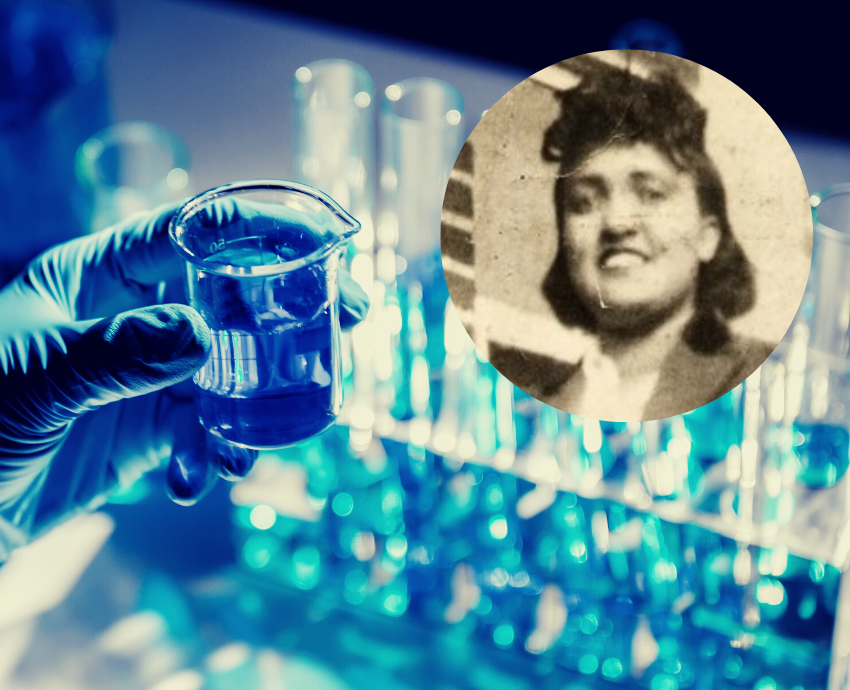
Cancer victim Henrietta Lacks’ family reached an out of court settlement with medical company Thermo Fisher Scientific in the United States on August 2, related to the unauthorised use of her cervical cancer cells, which benefited labs and companies and proved invaluable for research for decades.
Lacks, an African American mother of five, died of cervical cancer in 1951. Her cancer cells were extracted without her knowledge during surgery, cultivated and commercialised without her consent.
Known as “HeLa cells”, the cells from Lacks' body led advanced research in a wide range of fields, including vaccine development, cancer treatments and HIV/AIDS research.
Historic settlement
Lacks’ estate was represented by civil rights attorneys Ben Crump and Chris Seeger.
“I can think of no better present on what would have been Henrietta Lacks’s 103rd birthday,” said Crump, “than to give her family some measure of respect … dignity … and, most of all … justice … 70 years later.”
The settlement is the latest development in the legacy of mistrust of the scientific and medical establishment within Black and oppressed communities, whose bodies have historically been used without their consent. It also highlights the need for scientific transparency.
The legacy of medical racism is seen in the treatment of Black women giving childbirth.
According to the Center for Disease Control, in 2021 the maternal mortality rate among Black women was nearly 70 deaths per 100,000 live births. That is 2.6 times the rate for white women, regardless of income or education.
Unique cells kept secret
Dr George Gey, a cell biologist at Johns Hopkins Hospital in Baltimore, collected the tissue sample from Lacks’ tumor during her surgery. Lacks’ case was chronicled in the book, The Immortal Life of Henrietta Lacks.
Lacks' cancer cells were unique because they continued to replicate outside her body in the laboratory. That allowed researchers to use them to perform tests and to share the cell line widely. They became known as the “HeLa cell line” and were eventually used in tens of thousands of tests.
The procedure left Lacks infertile, Crump told the Court in 2021. She died the same year the tissue was removed, her family unaware her cells had been taken and used for research until decades later.
Crump described the pain Lacks suffered in the last months of her life as a result of the procedure. While Lacks was experimented upon, he said, her experiences were similar to many other Black people who have been mistreated in the medical system throughout history.
In its updated lawsuit, Lacks' family claimed Thermo Fisher was "unjustly enriched" each time "it cultivates, sells and receives payment for newly replicated HeLa cells".
The lawsuit asked a judge to award Lacks' estate three years worth of profit obtained by commercialising the HeLa cells and prohibit the company from using HeLa cells without the family's permission.
At the time of Lacks’ surgery, federal regulations requiring patient consent weren’t yet in place. Today, it is custom and practice, even for minor surgeries or treatments, to seek a patient’s signed consent.
Lacks’s family only became aware of the use of her cells in the 1970s. Until now, they have never received compensation for the income earned by companies using the He-La cells.
Racism allows super profits
Lacks’s family lawyers argued a case of unjust enrichment against Thermo Fisher in their 2022 amended complaint, saying the company continues to benefit from her cells.
“Black people have the right to control their bodies,” the lawyers wrote. “And yet Thermo Fisher Scientific treats Henrietta Lacks’ cells as chattel to be bought and sold.”
Thermo Fisher tried to have the case dismissed on the grounds that the statute of limitations had passed and that the commercial use of HeLa cells is legal.
According to the Wall Street Journal, Johns Hopkins hospital has worked with members of the Lacks family over the past decade “to honor her legacy. That work includes scholarships and annual symposia, as well as plans for a building named in her honor”.
Johns Hopkins told the WSJ it “has never sold or profited from the discovery or distribution of HeLa cells and does not own the rights to the HeLa cell”.
The settlement is an important step forward in the fight against medical racism and corporate exploitation of oppressed peoples.